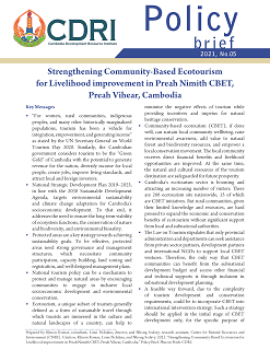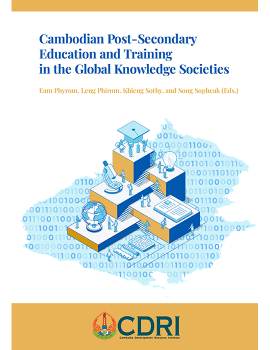
Cambodian Post-Secondary Education and Training in the Global Knowledge Societies
The emergence of global knowledge societies makes it necessary for Cambodian Post-Secondary Education and Training (PSET) system to: accelerate its knowledge-creation function, leading to academic excellence and intellectual prowess; cultivate vocational value, professional quality, and workplace learning habits in its students; build a robust...
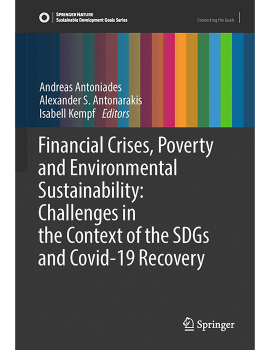
Challenges of Targeting Poor and Vulnerable Groups to Reduce Climate Change Vulnerability: The Case of a Water and Sanitation Project in Kampong Svay...
The escalating climate change-related disasters around the world are a serious threat to human existence and human livelihoods. Rural people living in developing countries, especially those of the poorest, are believed to be particularly vulnerable to climate change. As the number of climate change programs designed to help the poorer households ha...
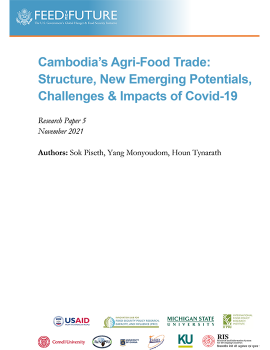
Cambodia's Agri-Food Trade: Structure, New Emerging Potentials, Challenges, and Impacts of COVID-19
This study provides overall analysis and informs readers about Cambodia’s agri-food trade regarding recent structures of trade flows, new emerging potentials, main challenges, and impacts of COVID-19. The main data source is BACI datasets produced by Centre d'Études Prospectives et d'Informations Internationales (CEPII), the French leading centre...
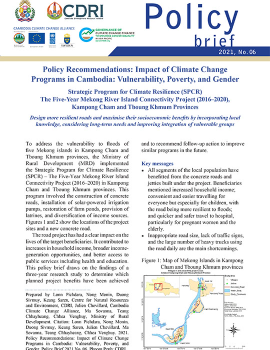
Policy Recommendations: Impact of Climate Change Programs in Cambodia: Vulnerability, Poverty, and Gender
To address the vulnerability to floods of five Mekong islands in Kampong Cham and Tboung Khmum provinces, the Ministry of Rural Development (MRD) implemented the Strategic Program for Climate Resilience (SPCR) – The Five-Year Mekong River Island Connectivity Project (2016–2020) in Kampong Cham and Tboung Khmum provinces. This program involved the c...
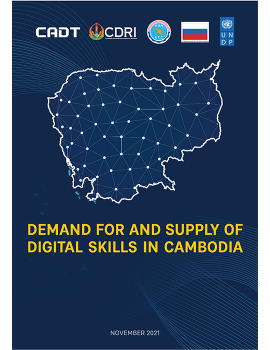
Demand for and Supply of Digital Skills in Cambodia
The study assesses current and future demand for and supply of digital and ICT skills and investigates the challenges firms of all sizes, universities, and TVET institutions face in preparing themselves and their students for digital technology adoption under the framework of the Fourth Industrial Revolution (4IR). A mixed-methods approach of quant...
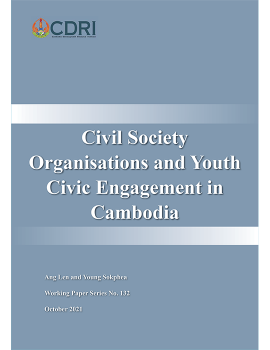
Civil Society Organisations and Youth Civic Engagement in Cambodia
This working paper explores the evolving role of civil society organisations (CSOs) in promoting youth civic engagement in Cambodia amid shifting political dynamics following the 2013 national election. Drawing on qualitative data from three provinces and Phnom Penh, the study examines the strategies of three distinct organisations—an international...
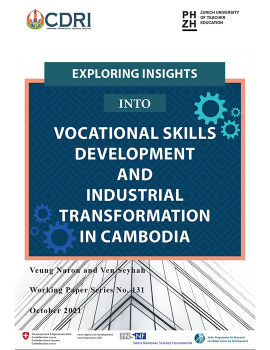
Exploring Insights into Vocational Skills Development and Industrial Transformation in Cambodia
This study investigates the relationship between vocational skills development (VSD) and industrial transformation in Cambodia, focusing on employers’ perspectives across the electrical and electronic (E&E), garment, and food processing sectors. Drawing on qualitative interviews with 36 managers and production heads from 18 companies, the research...
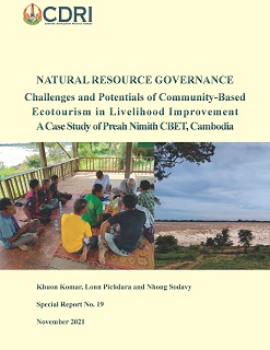
Challenges and Potentials of the Community Based Ecotourism in Livelihood Improvement: A Case Study in Preah Nimith CBET, Cambodia
Community-based ecotourism (CBET) has long been considered an effective natural resource governance policy for both forest conservation and livelihood improvement in developing countries around the world. Cambodia is no exception. The Cambodian government has been promoting and establishing CBET sites countrywide. Preah Nimith CBET, located in a re...
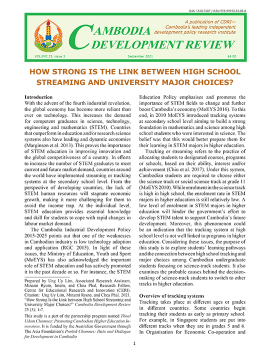
How Strong Is the Link between High School Streaming and University Major Choices?
The purposes of this study are to explore learning pathways when students transit from high school to higher education among Cambodian students and examine the probable causes behind their decision to switch academic majors. The study found that about half of surveyed students switched their academic majors. Virtually all the switchers are science-...

